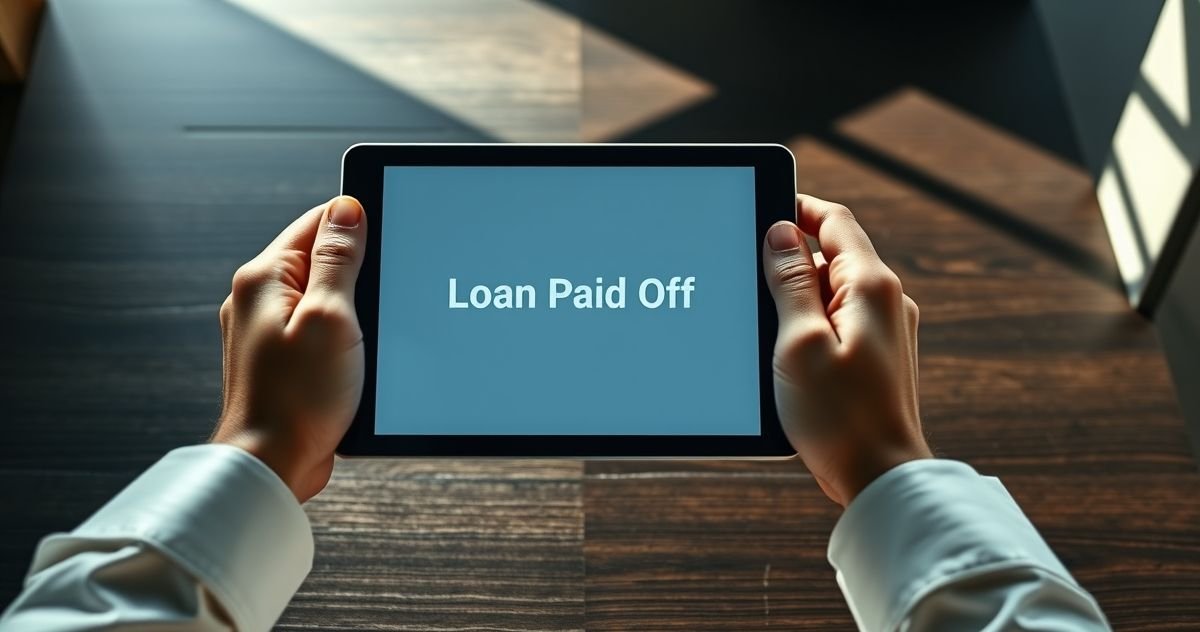How Early Payoffs Work: Principal vs. Interest
Most installment loans, like mortgages and auto loans, use an amortization schedule. This means each monthly payment is split between two parts:
- Principal: The amount you originally borrowed.
- Interest: The lender’s fee for loaning you the money.
In the early stages of your loan, a larger portion of your payment goes toward interest. As you continue to make payments, the balance shifts, and more of your money goes toward reducing the principal.
When you make extra payments, you disrupt this schedule in your favor. By instructing your lender to apply the extra funds directly to the principal, you shrink the loan balance faster. A smaller principal means less interest accrues each month, creating a snowball effect that accelerates your path to being debt-free.
Real-World Example: Paying Off an Auto Loan Early
Let’s say you take out a $25,000 auto loan for 60 months (5 years) at a 6% interest rate.
- Standard Payment: Your required monthly payment is about $483. Over 5 years, you’d pay nearly $4,000 in total interest.
- Early Payoff Strategy: You decide to round up your payment to $550 each month. This extra $67 goes directly to the principal.
By making this small change, you would pay off your car in 51 months instead of 60. This saves you nine months of payments and over $975 in interest.
The Pros and Cons of an Early Loan Payoff
Paying off debt ahead of schedule is a powerful move, but it’s essential to weigh the benefits against the potential drawbacks.
Key Benefits:
- Significant Interest Savings: This is the primary advantage. Paying less in interest means the total cost of your loan is lower. This is especially impactful for high-interest debt like personal loans or credit cards.
- Increased Cash Flow: Once a loan is paid off, you free up that monthly payment for other goals, such as saving, investing, or spending.
- Psychological Relief: Being debt-free provides immense peace of mind and reduces financial stress.
Potential Downsides:
- Opportunity Cost: If you have a low-interest loan (e.g., a mortgage at 3%), you might earn a higher return by investing the extra money in the stock market instead of paying down the loan faster.
- Prepayment Penalties: Some loans include a prepayment penalty—a fee for paying the loan off within a specific timeframe (often the first few years). Always check your loan agreement or ask your lender about this before making extra payments. You can find more information about these penalties from the Consumer Financial Protection Bureau (CFPB).
- Loss of Liquidity: Once you put extra money toward a loan, you can’t easily get it back. It’s crucial to have a healthy emergency fund (3-6 months of expenses) before aggressively paying down debt.
Frequently Asked Questions (FAQs)
Will paying off a loan early hurt my credit score?
Paying off a loan is a positive financial action and is good for your credit in the long run. When you close the loan account, you might see a small, temporary dip in your credit score because the average age of your accounts decreases. However, it also lowers your debt-to-income (DTI) ratio, which is a key factor that lenders consider, making you a more attractive borrower.
How do I make sure my extra payment goes to the principal?
Don’t assume your lender will automatically apply extra funds to your principal balance. Some may apply it to your next month’s payment. When making an extra payment, whether online or by mail, include a clear instruction: “Apply this payment directly to the principal balance.”
Should I pay off my low-interest mortgage early or invest?
This is a common financial debate. If your mortgage has a very low interest rate (e.g., 3-4%) and you are comfortable with investment risk, you could potentially earn a higher return (e.g., 7-10% on average) by investing in a diversified portfolio. However, paying off your mortgage offers a guaranteed, risk-free return equal to your interest rate and provides peace of mind. The right choice depends on your personal risk tolerance and financial goals.
Explore our other articles on debt management to build your financial strategy.



